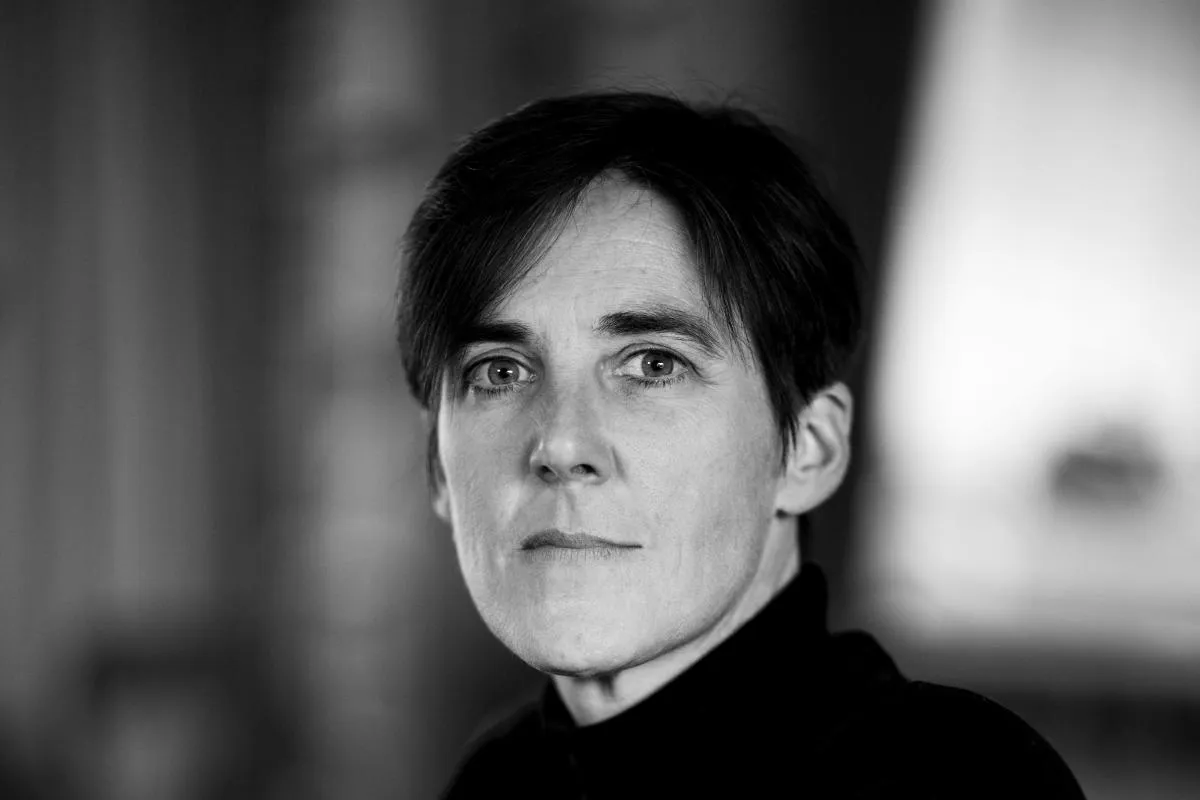People must be crazy

The human mind is capable of anything - because everything is in it, the whole past as well as the whole future. After all, what was it that we saw? Joy, fear, suffering, devotion, bravery, anger - who could say? - But truth all the same - truth stripped of its cloak of time.
- Joseph Conrad, Heart of Darkness
The Flemish author, journalist, librettist and screenwriter Gaea Schoeter outlines what is in store for the reader on the very first pages of her brilliant novel: Joseph Conrad is recalled at the beginning and then on page 12, Hemingway and his double-barrelled 577 Nitro Express.
Gaea Schoeter | Trophy | Zsolnay | 256 Seiten | 24 EUR
However, we are neither in Belgium's colonial past, where the Polish-born and later adopted Englishman Joseph Conrad, as captain of a ship on the Congo, gathered the material for his great masterpiece Heart of Darkness, nor on one of Hemingway's war-like big game hunts. Schoeter's novel is set in the post-colonial present, the here and now.
The well-heeled big game hunter, Hunter White, wants to shoot a rhino. He has paid vast sums of money to finally complete the Big Five. But as is so often the case in life, and even more so on every hunt, something goes wrong. To compensate for Hunter's frustration, his host Van Heeren explains to him that the Big Five are old hat and that instead, he can go after the Big Six. Simply put, he means hunting an indigenous person, in this case a member of the Khoisan group who are settled on his hunting farm in Botswana, who were often referred to as "Bushmen" in colonial times because they spent most of their hunter-gatherer life in the "bush". Numerous field studies by Western and indigenous ethnologists have of course since led to the necessary differentiation not only of the naming, but also of the highly complex language and lifestyle of the San people.
Heinz, Hans-Joachim; Keuthmann, Klaus (ed.); Vossen, Rainer (ed. series) | Social Organization of the !Kõ Bushmen | Rüdiger Köppe Verlag | 39,80 EUR
It's at this level of research that Schoeter sets the scene for her encounters between the white hunter and the San - nothing seems folkloristic or artificial, at most permeated by black humour and a radical impulse to unsettle the Western-socialized reader with his luxury morality.
Using the narrative device of internal focalisation, Schoeter constructs her story centrally from Hunter's perspective. This includes a defence of hunting that is so convincingly executed that it is likely to deeply unsettle any reader whose heart beats for animals. There are also digressions into the history of hunting, which, for example, explain the initial irony regarding Hunter's name with a reference to the legendary big game hunter J.A. Hunter.
The fact that this uncertainty is only the first of many is managed extremely subtly by Schoeter. Although associations with the Korean series Squid Game are quickly apparent (a similar experimental set-up about the instrumentalized and legalized killing of people), Schoeter takes time to create a far more nuanced anti-hero than the formulaic characters of the Netflix series. And at the same time setting out an unprecedented moral offensive in which the hunting of humans is lauded as a more substantial and better form of development aid.
This may sound a bit much at first, but anyone who is interested in development policy and the ever pseudo-pragmatic and even cynical North-South divide of today, is left in no doubt that we are walking over dead bodies here, and that those innocent times in which a film like The Gods Must Be Crazy (1980), a similar story of the meeting of indigenous San and the Western world, are over for good.
Schoeter finds exactly the right images, and this powerful story, never too dialogue-heavy, mercilessly and yet always a little ironically points out that human history is always subject to a boomerang factor. And in the end, the supposed winner inadvertently becomes a lasting loser.



